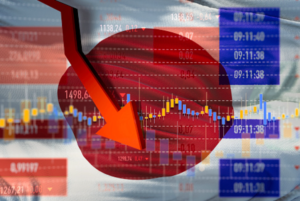$SPY $DIA #Tariffs #TradeWar #USPolitics #Economy #StockMarket #TradePolicy #July9Deadline #FinancialNews #TrumpNews
Will Skyrocketing Tariffs Up to 70% by July 9 Impact Your Wallet? Here’s How.
In the latest trump news, the administration has announced a drastic shift in trade policy, which could see tariffs on certain imports surge to up to 70%. As the deadline of July 9 approaches, many Americans are wondering how this significant change will affect their daily finances and the overall economy.
Understanding the Scope of New Tariffs
The proposed tariffs target a broad array of goods, primarily focusing on products imported from countries with which the U.S. has had longstanding trade deficits. The move is positioned as a strategy to encourage domestic production and, according to the administration, to ultimately strengthen the U.S. economy. However, economists and industry experts warn that the immediate impact could be quite different.
Immediate Effects on Market Prices
As tariffs increase, the cost of importing goods rises. Consequently, U.S. consumers can expect to see a hike in prices for everything from electronics to clothing. Retailers, facing higher costs, will likely pass these on to consumers. Furthermore, industries reliant on imported materials may suffer reduced profit margins or be forced to cut costs elsewhere, potentially impacting employment and wage levels.
Long-term Economic Implications
The long-term effects of these tariffs are complex and multifaceted. While the policy may benefit certain sectors by protecting them from foreign competition, it could strain others that depend on global supply chains. Additionally, countries affected by the U.S. tariffs may retaliate, leading to a trade war that could hamper global economic growth. This scenario could affect market stability and investor confidence, potentially leading to volatility in the stock markets.
Strategies for Consumers and Investors
For consumers, it might be wise to anticipate price increases and adjust budgets accordingly. Consider purchasing big-ticket items before the tariffs take effect. Investors, on the other hand, should watch the market closely. Diversifying investments and focusing on sectors that might benefit from the tariffs, such as domestic manufacturing, could be prudent.
Navigating Through Uncertain Times
As July 9 looms closer, the uncertainty surrounding the tariffs and their global repercussions grows. Staying informed about the developments and understanding the economic indicators can help mitigate adverse effects on your finances. Moreover, participating in discussions and forums can provide insights and strategies to deal with the upcoming economic changes.
In conclusion, while the intent behind the new tariff policy is to bolster the U.S. economy and protect domestic industries, the immediate repercussions might be challenging for the average consumer and investor. By preparing and staying informed, individuals can navigate these uncertain times more effectively. For more insights and updates on this topic, keep an eye on financial news platforms.











Comments are closed.